Get excited: Studio view for Christine Wong Yap’s work in progress

We’ve been all about the moon here at TPG headquarters in preparation for Helena’s upcoming piece. But at some point we realized that none us really understood what’s going on up there. A couple hours of internet research revealed that the heyday for earth/moon animations was the mid 80s.
This animation was useful because it has the view of the moon from earth coupled with the relative positions of the earth and moon in relation to the sun. It also drives home the difference in speeds between the earth’s rotation and the rotation of the moon around the earth.
Another fact that was new to me was that the same side of the moon is always facing us. It’s sort of like what would happen if you put a coffee cup on a lazy susan with its handle facing out. As you spun the lazy susan, the handle would remain pointing out. That means that the “Dark side of the moon” is always changing, but the “far side of the moon” is always the same. And technically the “far side of the moon” gets more total sunlight than the side of the moon we see.
And then there’s my personal favorite: this incredibly infectious educational hip hop video for remembering the moon phase terminology. “Quarter moon’s a half moon. Half moon’s a quarter moon”
If anyone comes across any useful descriptions or videos we’d love to hear about them.
artist interviews blog internet making of talking TPG artists

Now you can easily stay up to date on our artist interviews, or explore our archives via iTunes.
benefits blog making of subscription art
In the spirit of transparency we’ve decided to show you where all those subscribers’ dues go. Below is the financial breakdown for TPG in 2008. A few things we noticed:.
Compare that to the traditional gallery model where an artist must recoup his or her production costs and profits through their cut of works that may or may not sell. Through the subscription model artists shoulder less risk and art supporters funds are used more efficiently.
artist resources bay area blog making of others lives TPG8
A Sneak Peak into the making of TPG8 and into the life of James D. Lang, the owner of Horwinski Printing Company. Founded in 1906 and dedicated to the craft of letterpress, this business has a long history of working with artists, unions, politicians, and businesses of all sizes to spread their message.
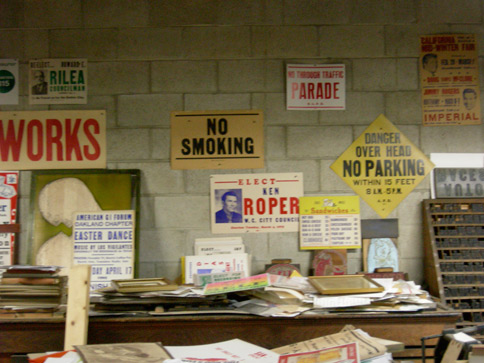
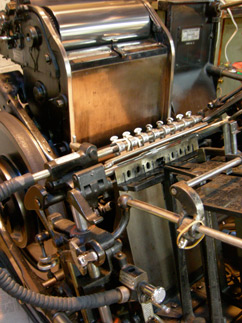
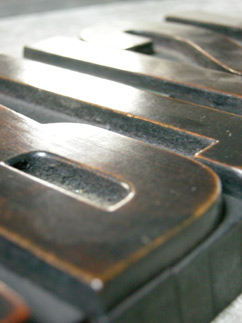
more after the jump >> Continue Reading »
bay area blog events good things making of news subscription art TPG7
bay area blog events good things making of TPG artists TPG2 TPG3 TPG4 tpg5 TPG6 TPG7
Sure it’s only for one day, but you gotta start somewhere.
We’re starting in Old Oakland. Where?
465 9th street (9th & Broadway), Oakland. September 5th, 2008, 5-10PM. We’ll be showing TPG7 as well as an (almost) two year Present Group Retrospective. Here’s some more info.
posted: August 29, 2008
blog making of other quotes tidings
 I’m trying to get my act together over here, so rather than post all these things I have been thinking about for a long time individually , I’m going to slam bam you in one massive post.
I’m trying to get my act together over here, so rather than post all these things I have been thinking about for a long time individually , I’m going to slam bam you in one massive post.
First off, Happy Thanksgiving! I hope everyone’s was wonderful and looked as good as this. Scrumdillyumptious.
As most of you know, or are finding out any day now, #4 is out!! We are very happy to have ended an eventful year with Brian’s work. Here’s a peak at me doing a late night final edit of our letter to our lovely subscribers.
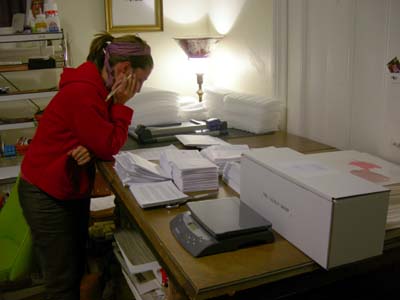
In our travels and travails around, we have come across a few things that I think are worth sharing.
Guerilla Sculpture spotted in Walnut Creek, CA- Sunday, November 18th
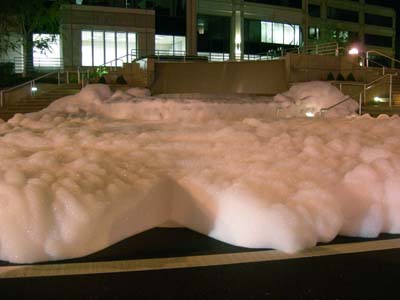
We just happened to come across this at the exact right moment, it’s peak. For a moment we didn’t understand or comprehend what was going on- it almost looked like snow, but it was advancing slowly towards us. For a moment while my brain was adjusting, I had a fleeting fear-unknowing, but then I was sooo happy. The bubbles were just billowing out and the wall of foam (at least a foot and a half tall) was slowly creeping across and covering the street. Pretty soon thereafter cars started whizzing through it, sending up huge blasts of “confetti” into the air, and trailing it all down the street.
This reminded me of an article I had been meaning to read for a while in Art Review Digital (Issue 16), entitled “What is Art for?” Here are a couple of quotes from it:
“[Artworks] help contruct my notions of what is possible, open new vistas of interest and have the potential to change who I am and what I think….What they do share is that there is a consequence to looking and thinking about them – a consequence that generates a possibility that was not there before, or was, at least, not available as a possibility to me…and has the potential to affect our social relations – how we choose to behave and what we choose to value.” -Charles Esche
“Art is the best tool we have when it comes to shattering our environment into an infinite number of imaginary tales, forms and space-times….What does seem clear is that art occupies a specific position in the city, and that this position is thus political: it incites its subjects to become active, to refuse the passive position the world of entertainment tries to foist on them. Entertainment places us in front of images to be looked at, while social formatting provides us with frameworks in which we must live. If artistic activity consists of putting these instruments and products back into play, then the observer’s task is, as in tennis, to knock the ball back into the other court.” – Niclolas Bourriaud
I found it interesting that both authors found the ulitmate purpose of art to be social, political. I’ve always liked art, and considered “good” art, anything that has had an affect, one way or another, on me. It is the challenge. A game. Bourriaud insinuates that it is the viewer that absorbs the new world and boundaries that the artist proposes by using that information to define and restrict that very world with new boundaries. Think of all the advertisements showing things floating in glass cubes floating in liquid years after Damien Hirst showed his first floating shark. So what is art for? It keeps the game going, keeps us moving forward.
Lego Hello World
I wish all my printers were made of legos.
LIFE photo archive hosted by Google
Images from Life Magazine going back to 1860′s, hosted by Google
Coming Face To Face With The President
Well crafted story about an under-heard point of view.
In California, Pot Is Now an Art Patron
A new funding source for the arts – reaping big rewards and funding many projects. It’s pot.
Notes on Portraiture in the Facebook Age
Celebrity Book Club: A List to End All Lists
Because, well, it’s sortof awesome.
Are "Artists' Statements" Really Necessary?
The pros and cons about that nemesis for most artists.
This to That
You tell it what you’ve got and it’ll tell you what to glue them together with.
Work of art: Online store for buyers, sellers
Not the TV show! Kelly Lynn Jones from Little Paper Planes is interviewed on her project, gives us a cheat sheet to local affordable art resources.